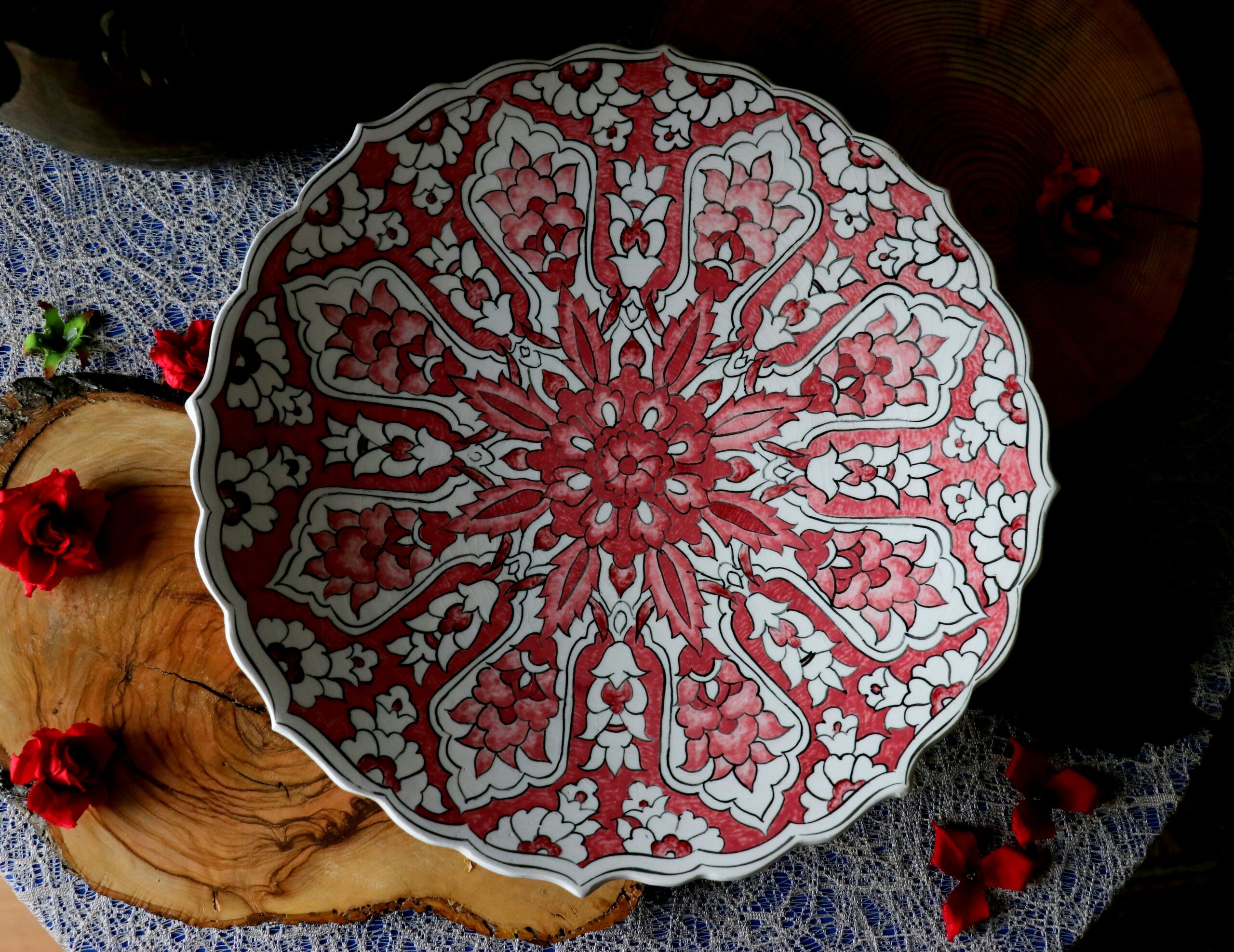God lived in the cheek-pink etching of a china plate, and He was shaped like fire. He roosted in the glass cabinet year-round, but on special occasions like this, Jenna got to bury Him in mashed potatoes and scrape her fork over the bush.
Today was Easter Sunday. She took little bites from the clouds and watched God reveal Himself to her like a kind of puzzle in reverse. A clean plate was a revelation, and she secretly wished for a new one each time: God as a dragon, God as a druid. God as a witch, a wildfire.
“God is everything,” her mom would say. “But not that.”
Jenna was made of two things: hunger and questions. She could get a good meal out of her mother, but never a straight answer.
They’d made a roast chicken for Easter dinner, and Jenna, all but hanging from the oven handle, had watched it cook. Syrupy carrots, wedges of onion, fresh-picked thyme – an altar for the bird. She knelt in front of the little window, under the honey-gold light of the gas flame.
“Ask your dad for the oyster,” her aunt told her. “That’s the best part.”
Her aunt was lighting the Advent candles with a stick lighter. She was a fluorescent but soft-spoken church lady whom Jenna never knew how to talk to. Jenna nodded and turned back to the chicken to look for oysters.
It seemed impossible, but then again, she’d heard somewhere that chickens came from dinosaurs. She wondered which one she was closer to. She wondered what it meant to eat something.
Right before dinner, she took the chicken oyster like communion. It was not a real oyster, but it was just as much like a cube of soft butter. Rich, fatty, luxurious – it shocked her that they would put the body of Jesus in a cracker.
Eat of my body (said Jesus), said the priest that morning, for I have given it up, something, something.
At dinner, Jenna sawed at her chicken breast until her knife slipped and screeched against the man who looked at God. Moses, her mother had told her. Moses Schmoses, she’d thought. He had his back turned anyway. She scratched curiously with her knife to see if she could do any damage, but this was not like the bleacher-seat hieroglyphs in the school gym that could be carved away with a dull pencil.
Her aunt—tangerine skirt suit, earrings like the shell of some ancient bug, a perfume like the time Jenna had asked to sip her father’s brandy and couldn’t get past the smell—was saying something about being thankful for the chicken, and for Jesus.
Today, God emerged from Jenna’s potatoes as a stovetop. The one like her parents’, with the even ring of flame-feathers going blue to orange.
“Moses cooked a chicken on God,” she said aloud, to see which eyes would watch her. “Eat of my body, for I have roasted it for you.”
Her aunt, mid-bite and wide-eyed, ceased her chewing and squirreled it away in her cheek as if she needed that brain power to process.
“God is not a joke,” her father said. His voice was hard, but Jenna saw how he fought to wrangle the corners of his mouth, and reality cracked open to her, just barely.
“He is not!” her mother echoed. Hers was a voice like china, brittle and breakable. “Not on this day.”
With that, her mother wrenched the fork and knife from Jenna’s clenched hands and piled them with her napkin on top of God. It was a signal that Jenna was to leave the table and hide herself.
God is not a witch, a joke, or a chicken. An oyster is not an oyster.
Jenna could not make heads or tails of it. She stood in the kitchen with her plate in her hands. The oven was off, but its light had been left on, painting a slanted square on the tiles. It offended her.
She took her plate to the stove, and with one hand switched off the oven light, then turned the knob for the front left burner until it clicked and God leapt up in soft, even lines. She watched Him flutter against the cast-iron grates. She did the same for every burner, then again for the oven, whose door she left open. She smelled the sparked gas, sweet and sharp, and remembered learning that the fire had to be lit or the house could explode.
Jenna stared until her eyes went dry and sweat sprouted in the creases of her eyelids. The chicken-oyster oil thickened in her mouth. More sweat bloomed on her upper lip. She felt all the water in her body playing musical chairs, and her heart played thumping music.
She’d been a witch for Halloween the year prior, after she’d learned that witches were burned. She asked her mother to cover her in soot and to paint her makeup like peeled skin. Her mother refused and said only that she would rather die.
Jenna took the napkin from her plate. She dangled it over the front burner until it lit. Her parents let out a cackle in the dining room. She let her fingers singe and held them there longer.
God is not a druid or a china plate.
She bolted her hand away and into her mouth, but she knew she had gotten close. She left God burning and returned to the dining room.
Her family waited for an apology to pretend to forgive, and Jenna had one prepared.
“God is not a plate,” she said.
She chucked it down with force, and did not look to see where the etching fissured, because she lunged over it to seize two Advent candles before her mother could take her arms.
Bringing their flames to her cheeks, she felt her eyes make tears and her skin make sweat, as if to fight against the very thing that would turn her into God.

